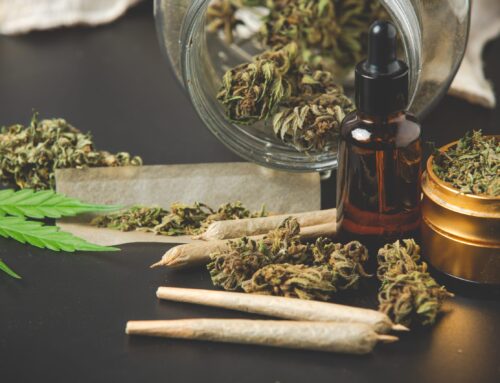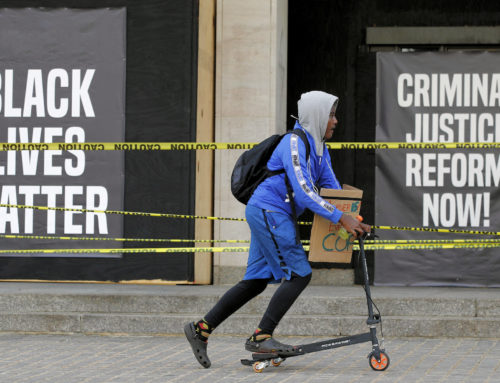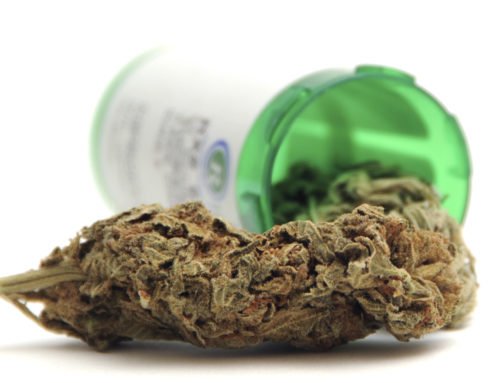Living in a college town can have its benefits, for college students this is especially the case. However, this also comes with some equal measure of dangers and pitfalls, as do most things in life. Often times college students are fresh out of the house, and experiencing a very new sense of freedom. With such a freedom, there are bound to be mistakes. Being honest, we all make mistakes. Though, some of these mistakes can also end up with one running afoul of the law. In Brazos County, specifically in such close-proximity to a major University, one of the more common types of offenses are alcohol related. It also so happens that the State of Texas takes a strict approach regarding such offenses.
As a consequence, many new college students, as well as those who have been in college for a year or more who are not 21 years of age may find themselves charged with Minor in Possession of Alcohol, otherwise known as MIP. Given that the average age of a college freshman in the United States is 18 (with the youngest being 17 and the highest usually around 19), this can be a very major problem for cities such as Austin, Houston, Dallas or the Bryan-College Station area, which have parts of town known principally for their bars and night life. Granted, it is also illegal to sell to those under the age of majority for the consumption or possession of alcohol, but there are accidents that still occur. Setting the already varied and deleterious affects of alcohol abuse aside, it is important to define just what constitutes an MIP.
The State of Texas’ Alcoholic Beverage Code § 106.05(a) lays out the requirements thusly: “a minor commits an offense if he possesses an alcoholic beverage”. Just by the language alone one can see that you do not have to actually have consumed any alcohol to be charged with an offense. Some common excuses, such as “I was holding it for my friend” or, “there’s nothing in the can, I just found it here on the ground” may not be sufficient to avoid legal trouble. It is simply sufficient for one to be a minor and be found possessing alcohol for charges to be filed against them. This also includes what is known as “constructive possession”, where a minor may not actually be found in possession of alcohol, but they were in a place where it was readily available. A prime example is a house party alcohol is available.
There are some exceptions, however, as noted above: 1) Consent of a parent or guardian, so long as the minor in question is in the visible presence of their parent, spouse, or legal guardian. 2) In the scope of Employment, such that the minor was acting in the course of scope of their employment by a business licensed by the Texas Alcoholic Beverage Code. Finally, 3) If the minor is acting under the supervision of a commissioned peace officer engaged in enforcing the provisions set forth by the Texas Alcoholic Beverage Code.
One must also note that in court these charges still must be proven beyond a reasonable doubt. For your average individual, though, that either means little or not enough. To an experienced attorney, however, it can mean everything concerning the best possible outcome for your case. This is just one of many factors that make it a good idea to secure the services of an experienced attorney to handle your case. Someone who lacks the training and experience needed in order to navigate the legal system will objectively have a harder time achieving the best possible result for their case. It is likely that many will not even know where to start.
This is where a defense attorney comes in. We are here to zealously advocate for our clients, and to make sure that our clients’ rights are protected. No one should feel as though they have been taken advantage of, least of all from a system that is meant to protect our citizens, as the adage goes: innocent until proven guilty, not the reverse. Just as you are expected to follow the law, so also must those who are sworn to uphold it, and even then there are mistakes. This is especially important when taking into account concepts mentioned above, such as “constructive possession. With just a little research, one can find instances of people that were simply in the wrong place at the wrong time.
For example, one might come to a party and have no intention of either consuming or even being near alcohol, but still get caught in the same net, essentially, as everyone else. Or, even more likely, one may be in a club or other establishment known for or otherwise serving alcohol, and be observed and perceived as being too close to someone else’s drink when otherwise minding their own business. In either case, this is a matter of dumb luck, and luck should have no place in whether or not you should be charged with even a lesser offense. Depending on where you live, the policing tactics for MIPs might seem predatory, or otherwise extremely unprofessional.
An actual example of this would Chilifest, an event that for many in the Brazos Valley is synonymous with drinking, and also notorious for various alcohol related incidents. There are many stories alleging misconduct or questionable methods of enforcing the law there, but one quite recent incident in particular went viral when footage of a minor who had been accused of underage drinking gambled over their ticket with officers in a game of “Rock-Paper-Scissors”. For many this kind of thing boggles the mind, and is certainly unprofessional. That particular individual quite lucky, but for the majority, they would both have a ticket and have had their rights disrespected.
On principle, your rights ought to be respected just as much as the situation you may or may not find yourself in. Unfortunately, this can often not be the case when put into practice. Whereas, the state has those who are there to pursue Justice and protect its interests, you should have someone to protect your interests as well, and this is exactly what I am here for. That said, I would also like to touch on the penalties for an MIP.
The punishment for MIP set out by the Texas Alcoholic Beverage Code is such: a Class “C” misdemeanor punished by a fine not to exceed $500.00. If the Minor has 2 prior convictions, the punishment is a fine with a minimum of $250.00 but not exceeding $2,000.00, confinement in jail for a term not to exceed 6 months, or both a fine and confinement. In addition to this a convicted minor will be ordered to perform community service for a minimum of 8 but not exceeding 12 hours. If the minor has a prior conviction, the community service is a minimum of 20 hours with a maximum of 40 hours. If there are no prior convictions (or the court finds it necessary in the event of prior convictions), the minor will be required to attend an alcohol awareness course approved by the Texas Commission on Alcohol and Drug Abuse. In addition to this, one can even have their Driver’s License suspended, with more time being added with a prior conviction.
These punishments are severe, but there is still another option. One can request in court (in person) to be placed on Deferred Disposition. If granted by the Judge, you will be given a series of conditions by which you must adhere to by a set of deadlines. This can not exceed 180 days. You still however are responsible for state fees while you are placed on deferred. In order to comply with the terms. These terms include but are not limited to: payment of state fees (as mentioned above), not receiving any non-traffic citations, community service, a required awareness class, as well as a Victim Impact Panel class. As I said before, mistakes are made and accidents happen. It is important however to take the requirements of Deferred Disposition seriously, as failure to complete them will result in your conviction and the incurment of state fines, as well as the loss of your Driver’s License and a reinstatement fee of $100 once the period of suspension (180 days) is up.
In addition to this, it is always a good idea to be informed about the dangers of alcohol and the potential effects of alcohol on your life should something go wrong. While ideally one should avoid the situations that can lead to being charged with MIP, realistically mistakes and accidents can and do occur. For such situations, consulting with a defense attorney can be your best bet, I will work with you to best assess your legal issue and determine where things may or should go, while also ensuring that your constitutional rights will be upheld.










 [/one_fourth][one_fourth spacing=”yes” last=”no” center_content=”yes” hide_on_mobile=”no” background_color=”” background_image=”” background_repeat=”no-repeat” background_position=”left top” link=”https://www.google.com/search?q=craig+greaves+google+review&rlz=1C1CHBF_enUS706US707&oq=craig+greaves+google+review&aqs=chrome..69i57.4724j0j7&sourceid=chrome&ie=UTF-8#lrd=0x864681a2e536064b:0xf68c5e64fac79532,3″ target=”_blank” hover_type=”none” border_position=”all” border_size=”” border_color=”” border_style=”solid” padding-top=”” margin_top=”” margin_bottom=”” animation_type=”0″ animation_direction=”down” animation_speed=”0.1″ animation_offset=”” class=”button_pop-up” id=””]
[/one_fourth][one_fourth spacing=”yes” last=”no” center_content=”yes” hide_on_mobile=”no” background_color=”” background_image=”” background_repeat=”no-repeat” background_position=”left top” link=”https://www.google.com/search?q=craig+greaves+google+review&rlz=1C1CHBF_enUS706US707&oq=craig+greaves+google+review&aqs=chrome..69i57.4724j0j7&sourceid=chrome&ie=UTF-8#lrd=0x864681a2e536064b:0xf68c5e64fac79532,3″ target=”_blank” hover_type=”none” border_position=”all” border_size=”” border_color=”” border_style=”solid” padding-top=”” margin_top=”” margin_bottom=”” animation_type=”0″ animation_direction=”down” animation_speed=”0.1″ animation_offset=”” class=”button_pop-up” id=””] [/one_fourth][one_fourth spacing=”yes” last=”no” center_content=”yes” hide_on_mobile=”no” background_color=”” background_image=”” background_repeat=”no-repeat” background_position=”left top” link=”https://www.avvo.com/attorneys/77803-tx-craig-greaves-60538/write_review.html” target=”_blank” hover_type=”none” border_position=”all” border_size=”” border_color=”” border_style=”solid” padding-top=”” margin_top=”” margin_bottom=”” animation_type=”0″ animation_direction=”down” animation_speed=”0.1″ animation_offset=”” class=”button_pop-up” id=””]
[/one_fourth][one_fourth spacing=”yes” last=”no” center_content=”yes” hide_on_mobile=”no” background_color=”” background_image=”” background_repeat=”no-repeat” background_position=”left top” link=”https://www.avvo.com/attorneys/77803-tx-craig-greaves-60538/write_review.html” target=”_blank” hover_type=”none” border_position=”all” border_size=”” border_color=”” border_style=”solid” padding-top=”” margin_top=”” margin_bottom=”” animation_type=”0″ animation_direction=”down” animation_speed=”0.1″ animation_offset=”” class=”button_pop-up” id=””] [/one_fourth][one_fourth spacing=”yes” last=”yes” center_content=”yes” hide_on_mobile=”no” background_color=”” background_image=”” background_repeat=”no-repeat” background_position=”left top” link=”https://www.yelp.com/biz/the-law-office-of-craig-m-greaves-bryan” target=”_blank” hover_type=”none” border_position=”all” border_size=”” border_color=”” border_style=”solid” padding-top=”” margin_top=”” margin_bottom=”” animation_type=”0″ animation_direction=”down” animation_speed=”0.1″ animation_offset=”” class=”button_pop-up” id=””]
[/one_fourth][one_fourth spacing=”yes” last=”yes” center_content=”yes” hide_on_mobile=”no” background_color=”” background_image=”” background_repeat=”no-repeat” background_position=”left top” link=”https://www.yelp.com/biz/the-law-office-of-craig-m-greaves-bryan” target=”_blank” hover_type=”none” border_position=”all” border_size=”” border_color=”” border_style=”solid” padding-top=”” margin_top=”” margin_bottom=”” animation_type=”0″ animation_direction=”down” animation_speed=”0.1″ animation_offset=”” class=”button_pop-up” id=””] [/one_fourth]
[/one_fourth]